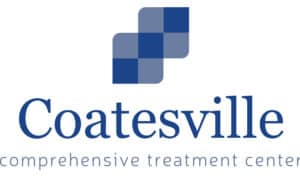Morphine Addiction And Abuse
Understanding Morphine
Morphine is an Opiate used to relieve pain. Named after Morpheus, the Greek god of dreams, Morphine provides a feeling of euphoria often described as a dreamlike state. The drug can be taken in the form of a tablet, syrup, or injection. In some cases, Morphine can even be smoked.
Morphine has the potential to be highly addictive, as tolerance to it develops rapidly. A federally designated Schedule II drug, Morphine is used to treat moderate, severe, and chronic pain. It is also used for pain relief after major surgeries, treatment for cancer-related pain, and shortness of breath at the end of a patient’s life.
However, Morphine also has a high potential for abuse because of its pleasurable effects and relative accessibility. In recent years, Morphine pills have added abuse deterrent coding so that they cannot be crushed, snorted, or injected. While this has reduced the addictive potential of prescribed Morphine, it has not eliminated the risk nor impacted illicitly manufactured Morphine.
Some of the common street or slang names for Morphine include M, Miss Emma, Monkey, Roxanol, and White Stuff. Morphine is a naturally occurring substance extracted from either the Opium poppy plant or from concentrated poppy straw. Its chemical makeup is similar to Heroin, as they are both extracted from the same plant. Contact a treatment provider for help battling a Morphine addiction.
Online Addiction Counseling
Get professional help from an online addiction and mental health counselor from BetterHelp.
- Access to Therapy 24/7
- Easy Online Scheduling
- 20,000+ Licensed Therapists
Paid Advertising. We may receive advertising fees if you follow links to the BetterHelp site.
Morphine Effects And Abuse
As a Narcotic drug, Morphine is often abused for its pleasurable effects. Those suffering from chronic pain have the potential to misuse their medication, which increases their likelihood of developing a substance use disorder.
Common effects of Morphine include:
- Euphoria
- Pain relief
- Sleepiness or unusual drowsiness
- Reduced anxiety
- False or unusual sense of well-being
- Relaxed or calm feeling
Any time someone uses Morphine without a prescription, it is considered abuse. Although it is a legal substance when prescribed, it is a heavily regulated one. Possession of Morphine without a prescription is a criminal offense, the degree of which varies based on the jurisdiction and the amount of the drug in possession.
Those who abuse Morphine in high doses put themselves at risk of overdosing. Signs of a Morphine overdose include slurred speech, inattention, intense drowsiness, fever, elevated blood pressure, increased thirst, lower back or side pain, decreased responsiveness, extreme sleepiness, swelling of the face and extremities, lack of movement, slowed breathing, muscle cramps, spasms, pain, and stiffness. This is because Morphine depresses the Central Nervous System (CNS). Overdosing on Morphine can lead to unconsciousness, coma, or slowed breathing to the point of death.
Featured Center Offering Treatment For Morphine Addiction


Addiction To Morphine
Addiction to Morphine develops for a number of reasons and is often the consequence of consistent abuse. An addiction typically begins with a tolerance — needing larger doses of Morphine to feel its effects. Once a tolerance develops, users will experience withdrawal symptoms when they don’t take Morphine, making it hard to quit. In many cases, the psychological dependence on Morphine develops soon after the physical one.
Someone addicted to Morphine will compulsively look for and and abuse it, ignoring the negative consequences.
Morphine addiction is similar to Heroin addiction and is a very difficult addiction to overcome. Sudden withdrawal from Morphine can be extremely uncomfortable and unpleasant; therefore, a medically managed detoxification is the best way to rid the body of the substance. Contact a treatment provider to discuss available treatment options.
Morphine And Other Drugs
Because Morphine is a CNS Depressant, it is very dangerous to combine with other CNS Depressants. Alcohol and Benzodiazepines are 2 commonly abused CNS Depressants that can result in extreme sedation, respiratory failure, or even coma when used with Morphine.
Looking for a place to start?
Join the thousands of people that have called a treatment provider for rehab information.
Free and confidential
Available 24/7
Access to professional treatment
Morphine Abuse Statistics
More than half of accidental drug deaths in the US were caused by Heroin and Morphine. Some other statistics include:
10
percent
10% of the US population has abused an Opiate drug in their lifetime.
106
percent
The number of Morphine addicts admitted to the emergency room increased by 106% between the years of 2004 and 2008.
60
percent
More than 60% of Morphine addicts admitted to getting the drug from friends or relatives.
Check if my insurance covers rehab
Addiction Center is not affiliated with any insurance.
Overcoming Morphine Addiction
Morphine addiction can be very difficult to overcome, but kicking the habit is far from impossible. Studies have shown that people who are able to make life changes dramatically increase their chances of recovery without relapse. Help is available. Contact a treatment provider to discuss treatment options.
Published:
Author
Jeffrey Juergens

-
Jeffrey Juergens earned his Bachelor’s and Juris Doctor from the University of Florida. Jeffrey’s desire to help others led him to focus on economic and social development and policy making. After graduation, he decided to pursue his passion of writing and editing. Jeffrey’s mission is to educate and inform the public on addiction issues and help those in need of treatment find the best option for them.
- More from Jeffrey Juergens
Reviewed by Certified Addiction Professional:
Theresa Parisi

Theresa Parisi is a Certified Addiction Professional (CAP), Certified Behavioral Health Case Manager (CBHCM), and International Certified Alcohol and Drug Counselor (ICADC) with over 12 years of experience in the addiction treatment field.
- More from Theresa Parisi
Sources


Recovery Starts Today
Call Now For Addiction Support




Recovery Centers of America at Monroeville
Monroeville , PA


Cove Forge Behavioral Health Center
Williamsburg , PA

Huntington Creek Recovery Center
Shickshinny , PA

Serenity Mountain Recovery Center for Women
Waymart , PA


Pocono Mountain Recovery Center
Henryville , PA


Coatesville Comprehensive Treatment Center
Coatesville , PA

Ridgeview Behavioral Hospital
Middle Point , OH

Recovery Centers of America at Devon
Devon , PA

Banyan Treatment Centers – Philadelphia
Philadelphia , PA
